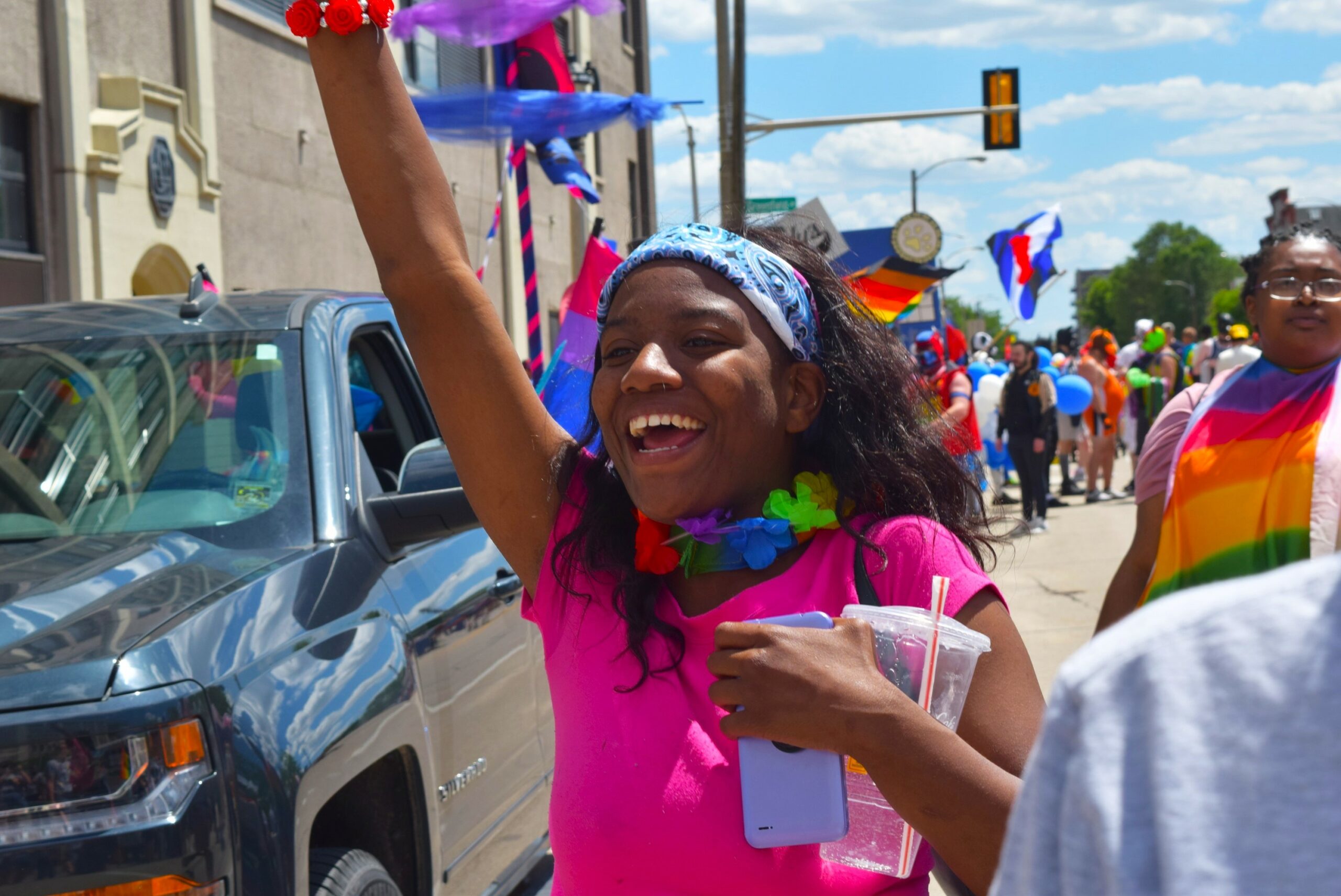Honoring LGBTQ+ Youth Housing History
Publish Date: June 17, 2024Our first housing program, Q-BLOK, recognized as a HUD best practice housing program, gives youth a voice in where they live and the types of support they receive.
LGBTQ+ youth face alarming rates of homelessness nationwide. National estimates indicate that, of the 3.5 million young adults aged 18 to 25 who experience homelessness in the U.S. annually, 40% identify as LGBTQ+.
2024 marks the 15th anniversary of Q-BLOK, Pathfinders’ housing program for LGBTQ+ and allied young people aged 16-25. Q-BLOK is free and voluntary for participants, providing housing, rental subsidies and reliable support as youth work on their mental wellness, employment and overall stability.
Q-BLOK was one of the first housing programs in the nation to provide this level of intensive and flexible support. Since 2009, more than 100 Milwaukee-area youth have received support from Q-BLOK.
Q-BLOK’s Beginnings: No Options for Unhoused, Queer Young Adults
“Young people were aging out of our teen shelter with no permanent housing, no options and no support,” said Tim Baack, Pathfinders’ President & CEO. “That trajectory needed to be changed.”
Unhoused LGBTQ+ young people at Pathfinders say family rejection, violence and family housing instability are reasons for their homelessness. Experiences with foster care and youth justice systems, both of which see an over-representation of LGBTQ+ youth, also increase their risk. Youth who are LGBTQ+ and Black or multiracial experience some of the highest rates of homelessness.
Cream City Foundation in Milwaukee provided seed funding for Q-BLOK after commissioning a study that found, in 2007, 23% of unhoused Milwaukee youth identified as LGBTQ+.
“Q-BLOK was part of the journey to collectively address the well-being of our youth, especially those on the streets, to make sure they had a safe place to live and the support that they needed to thrive,” said Maria Cadenas, former Executive Director of Cream City Foundation.
Pathfinders has expanded the successful Q-BLOK model to serve other unhoused youth populations. Its overall housing program has a zero percent eviction rate and two-thirds of participants graduate without the need for lifelong support.
The U.S. Department of Housing and Urban Development, the White House, the WI Governor’s office and others have recognized Q-BLOK and Pathfinders for this innovative work.
Benefits of Addressing LGBTQ+ Youth Homelessness
Experiencing homelessness as a young person is strongly correlated with lifelong housing instability, sexual exploitation and trafficking, substance misuse and suicide.
“The entire community benefits when we address LGBTQ+ young adult homelessness,” said Baack. “First, young people will no longer experience extreme vulnerability that leads to exploitation and lifelong trauma. Supporting someone’s housing for a few years is much less expensive than the emergency healthcare, mental health and justice systems with which unhoused youth often interact. Finally, by intervening now, we can decrease their need for lifelong housing resources.”
A goal of Q-BLOK is ensuring participants have opportunities to exercise autonomy and build a life that feels right for them. This begins with participants choosing the apartment and neighborhood they live in.
“Many queer youth experiencing homelessness never felt their voice mattered,” said DeShanda Williams-Clark, Pathfinders’ Chief Program Officer. “They never had the freedom most young people do to make mistakes. They were never taught how to be a good tenant or a good employee. Q-BLOK provides a community of support where young people are accepted, validated and empowered.”
The Fight Continues
In Q-BLOK’s 15th year, anti-LGBTQ+ rhetoric, legislation and efforts to criminalize homelessness pose ongoing challenges.
“Harmful legislation increases the vulnerability of the young people we serve,” said Baack. “They’re going to face discrimination in employment. They’re going to drop out of school because of bullying. And they’re going to continue to struggle with housing.”
Recently, The Trevor Project released the findings of their 2024 U.S. Survey on the Mental Health of LGBTQ+ Young People, with 39% of those surveyed reporting seriously considering suicide in the past year – including 46% of transgender and nonbinary young people.
“For all the progress we’ve achieved, LGBTQ+ young people still face discrimination and bias, from their elected officials to their families to the social services they turn to for help,” said Baack. “Our youth deserve better.”
Get Involved
Provide safety, hope and healing to youth.
Get Informed
Learn about issues impacting youth.
Donation Drop-offs
Guidelines for in-kind gifts.

